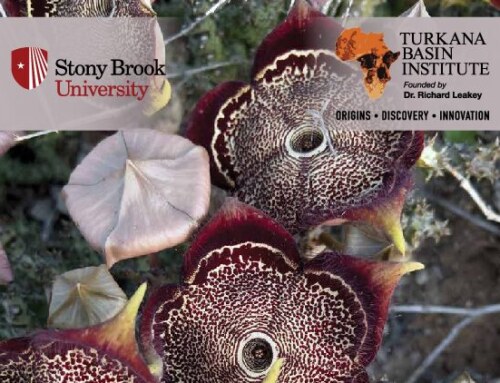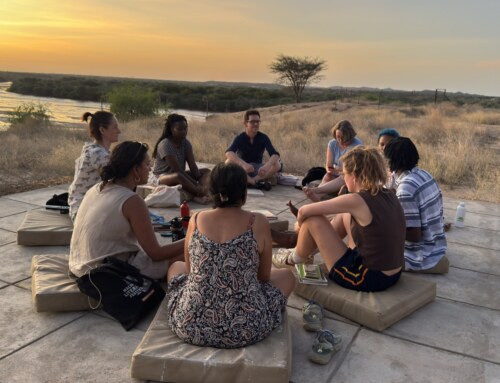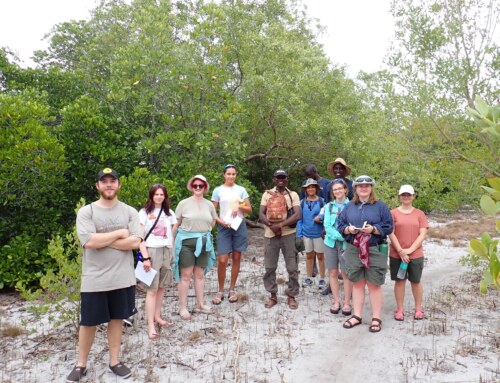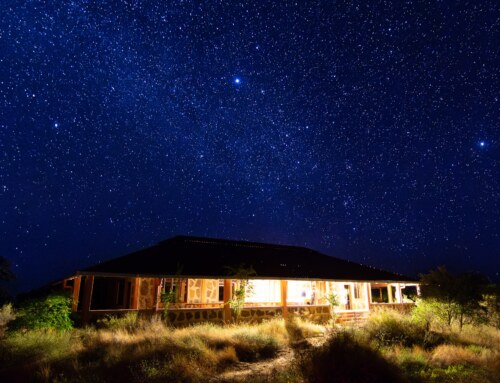Posts from the Stony Brook University Office of the President Blog:
Stony Brook University President Samuel L. Stanley Jr., M.D., is making his first visit to Africa to visit Stony Brook-affiliated research institutes, centers and community outreach programs, including the Turkana Basin Institute.

Stony Brook University President Samuel L. Stanley Jr., MD, (right) with Professors Richard and Meave Leakey, discussing fossils recovered at the Turkana Basin Institute.
President Stanley’s 10-day itinerary includes stops in Centre ValBio, an organization directed by Professor Patricia Wright to protect Madagascar’s unique and biologically diverse ecosystems; Mahajanga in northwestern Madagascar where Professor David Krause conducts his research mission and humanitarian work as founder of the Madagascar Ankizy Fund; and, finally, the Turkana Basin in northern Kenya, where Professors Richard, Meave and Louise Leakey and their staff conduct their research and humanitarian activities at TBI. Throughout his visit, Dr. Stanley has shared highlights, observations and experiences of his trip, posted to the University website.
“I am extremely fortunate to be able to visit with our distinguished and renowned faculty in the respective environments in which they have each made unprecedented discoveries, where their research has thrived, and where they are truly part of the fabric in those nations,” said President Stanley. “These partnerships enhance educational and research opportunities for our faculty and students and significantly contribute to the quality of life of those who reside where we conduct our work. I am certain that it will be an extremely rewarding and educational experience.”
Now in the the final part of his trip, President Stanley visits the Turkana Basin Institute’s research facilities near the shores of Lake Turkana, site of five decades of groundbreaking human prehistory research. He was welcomed by world-renowned paleoanthropologist Richard Leakey, Professor of Anthropology at Stony Brook and Chair of the Turkana Basin Institute. Dr. Stanley is presently touring TBI’s facilities and is visiting a health clinic, maternity ward and a school in the area to see the impact TBI is having on the lives of people in northern Kenya.
This post was adapted from materials provided by Stony Brook University News.





